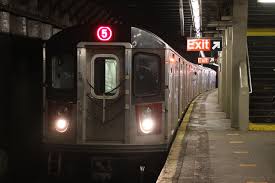New York City now has a new congestion pricing plan, creating problems for residents and businesses while providing some benefits to the city’s transportation system. The plan, which charges vehicles entering Manhattan south of 60th St. during peak hours, places a financial burden on commuters.
According to the Wall Street Journal, the plan has caused significant disruption to local businesses. Centerpark, a firm that manages 35 parking garages in Manhattan, reported a 20% drop in customers since the congestion pricing program began. Taxi drivers are also struggling. Some report that their daily trips have dropped from 15 to just three or four per day during a six-to-seven-hour window.
On the other hand, the Metropolitan Transportation Authority reported an 8% decrease in vehicles entering congestion zones and improved travel times on certain routes.
For example, travel times through the Holland Tunnel were 65% faster during the morning commute and traffic on the Brooklyn Bridge was down 28%.
Other areas, such as 23rd and 42nd streets, saw slower traffic than before.
While the decreased commute time is nice, the toll system further disadvantages commuters who already face high costs.
NBC reports that even with the $3 credit during rush hour, the fees are an addition to the existing bridge and tunnel tolls. This cost leaves people who rely on personal vehicles with a hard choice between paying the increased fees or using less accessible public transportation.
Other cities worldwide, such as London and Stockholm, have implemented similar programs, but New York has been stricter.
New York’s plan operates from 9 a.m. to 9 p.m. on weekends, unlike London’s limited weekend hours or Stockholm’s full weekend exemption, according to Vox Media.
This extended schedule might also unfairly burden weekend visitors and the local businesses reliant upon their patronage.
This is particularly ill-timed, as the city still struggles to regain its footing after economic hardship.
Business owners have voiced valid concerns over lost customer traffic.
The Wall Street Journal reports that parking lot operators will not recover from losses that could have a lasting impact on the local economy.
Instead of rushing into this, the city could have put resources into upgrading current infrastructure and public transportation methods.
This, in turn, could chase businesses away and place additional financial burden placed on the shoulders of its residents, who barely cope with a high cost of living.






